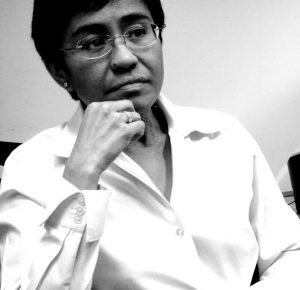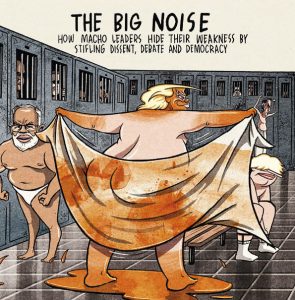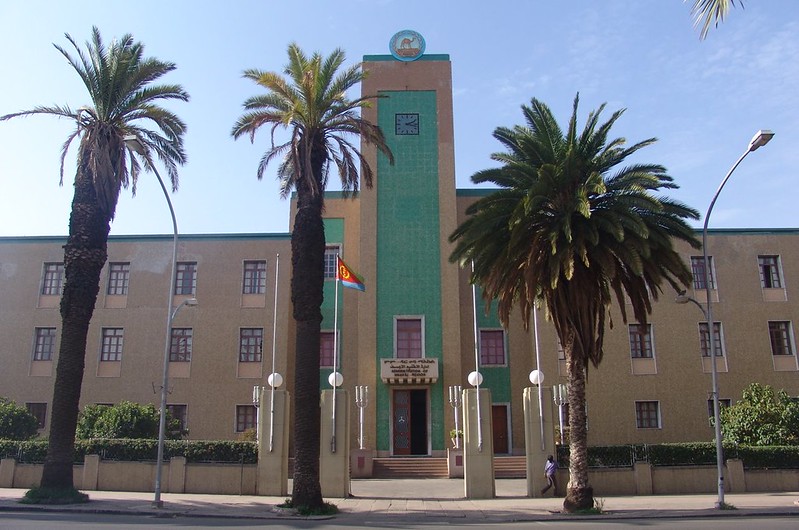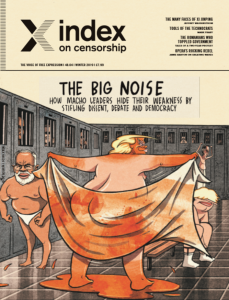Index relies entirely on the support of donors and readers to do its work.
Help us keep amplifying censored voices today.
[vc_row][vc_column][vc_column_text] Index on Censorship has joined sixty press freedom groups and civil society organisations, journalism institutions, filmmakers, and other supporters to form a coalition in support of internationally celebrated Filipino-American journalist Maria Ressa.
Index on Censorship has joined sixty press freedom groups and civil society organisations, journalism institutions, filmmakers, and other supporters to form a coalition in support of internationally celebrated Filipino-American journalist Maria Ressa.
Index has joined with the Committee to Protect Journalists, the International Center for Journalists , and Reporters Without Borders and many others (see below) in the launch of the #HoldTheLine campaign in support of Ressa and independent media under attack in the Philippines. Acting in coordination with Ressa and her legal team, representatives from the three groups form the steering committee, working alongside dozens of partners on the global campaign and reporting initiatives. The campaign takes its name from Ressa’s commitment to ‘hold the line’ in response to sustained state harassment and prolific online violence.
Ressa is best known for two decades covering South East Asia for CNN and founding the multi-award winning Philippines news website Rappler. On 15 June 2020, she was convicted of “cyber-libel,” alongside former Rappler colleague Reynaldo Santos Jr – a criminal charge for which they face up to six years in prison. The conviction relates to a story about corruption from 2012 – before the law was even enacted – and hung on the correction of a typo.
Ressa and Santos both posted bail, but could be imprisoned if the case is not overturned on appeal. Ressa is facing at least six other cases and charges. Guilty verdicts in all of them could result in her spending nearly a century in jail. Rappler is also implicated in most of these cases, with several involving criminal charges related to libel, foreign ownership, and taxes. The convictions are the latest offence in the Duterte government’s wider campaign to stifle independent reporting, including the recent shutdown of the main national broadcaster ABS-CBN.
“I am moved by the incredible outpouring of support we’ve received from around the globe for our campaign to #HoldTheLine against tyranny – even as President Duterte continues his public attacks on me, the legal harassment escalates, and the state-licenced and Facebook-fuelled online violence rages on. We can’t stay silent because silence is consent,” Ressa said. “We need to be outraged, to fight back with journalism. If we don’t use our rights, we will lose them. Please stand with us!”
Those interested in showing support can sign and share this petition calling for the Philippine government to drop all charges and cases against Ressa, Santos and Rappler, and end pressure on independent media in the Philippines.
The 60 founding members of the #HoldTheLine Coalition are:
The Committee to Protect Journalists (CPJ), the International Center for Journalists (ICFJ) and Reporters Without Borders (RSF), which form the steering committee; African Media Initiative; Association for International Broadcasting (AIB); Alliance for Journalists’ Freedom; Amnesty International; ARTICLE 19; Association of Caribbean Media Workers; Canadian Journalism Forum on Violence and Trauma; Centre for Freedom of the Media (CFOM); Centre for Law and Democracy; CineDiaz; The Coalition For Women In Journalism; Community Media Forum Europe (CMFE); DART Asia Pacific; The Daphne Caruana Galizia Foundation; Dart Center; Doc Society; English PEN; European Journalism Centre; First Look Media; Free Press Unlimited; Global Alliance on Media and Gender (GAMAG); Global Forum for Media Development (GFMD); Global Voices; Graduate School of Journalism, Columbia University; Index on Censorship; Institute for Regional Media and Information (IRMI); International Media Support (IMS); International Association of Women in Radio and Television (IAWRT); International News Safety Institute (INSI); International Press Institute (IPI); International Women’s Media Foundation (IWMF); James W. Foley Legacy Foundation; Judith Neilson Institute; Justice for Journalists Foundation; Media Association for Peace (MAP); Media Development Investment Fund (MDIF); Namibia Media Trust (NMT); National Union of Journalists of the Philippines (NUJP); Pakistan Press Foundation; Panos Institute Southern Africa; PEN America; Philippine Center for Investigative Journalism (PCIJ); Press Freedom Defence Fund; Project Syndicate; Public Media Alliance; Pulitzer Center on Crisis Reporting; Rappler; Rory Peck Trust; Rural Media Network Pakistan; South African National Editors’ Forum (SANEF); Storyhunter; The Signals Network; Tanzania Media Practitioners Association; Union of Journalists in Finland; World Association of Newspapers and News Publishers (WAN-IFRA); and World Editors Forum.[/vc_column_text][/vc_column][/vc_row][vc_row][vc_column][three_column_post title=”More news” category_id=”581″][/vc_column][/vc_row]
[vc_row][vc_column][vc_video link=”https://www.youtube.com/watch?v=s-bKFo30o2o”][/vc_column][/vc_row][vc_row][vc_column][vc_column_text]What does it mean to be a man? That has been the subject of many a song and is also the subject of the winter 2019 issue of Index on Censorship magazine, where we consider how leaders are using concepts of masculinity for their political gain and our free speech loss. While you’re reading the mag, have a listen to your playlist which features artists from Bob Dylan to Taylor Swift, who are all singing, one way or another, about the problems with macho men.
Enjoy the songs below. Hopefully the outspoken lyrics of women like Lily Allen and Shania Twain will leave you feeling more empowered than despondent.[/vc_column_text][/vc_column][/vc_row][vc_row][vc_column][vc_column_text]
 You’re So Vain – Carly Simon
You’re So Vain – Carly SimonWhen US President Donald Trump tweeted that he is “so great looking and smart”, Carly Simon’s classic take down of an unnamed man sprung to mind. Ditto every time we see Russian President Vladimir Putin’s appearing topless on a horse. But what are these mega egos doing to our rights? Editor-in-chief Rachael Jolley spoke to New York Times lawyer David E. McCraw about the state of media freedom in the USA under Trump.
“Macho, macho man! I want to be a macho man!” Is this what the current pack of male leaders listen to every morning? And do they also add their own words, like dominant, aggressive and infallible? For a more complete list of what they are like, how they are destroying our freedoms and how you can be a macho man too, read Rob Sears guide for the modern despot.
Brandon Flowers told NME in 2017 that the then-newly released single The Man depicted his attitude towards masculinity when The Killers started out, an attitude he now regrets. With lyrics including “don’t try to teach me, I got nothing to learn”, it’s easy to see why Flowers is glad to have grown out of such youthful notions. Unfortunately, the men who dominate world politics don’t seem to have matured out of their eagerness to be “The Man” and all that that implies. Case in point China’s Xi Jinping.
Irish rock band Thin Lizzy had a hit in 1976 with The Boys are Back in Town, a joyful ode to, well, boys being back in town. Its catchy melody means it’s still a feature on many party playlists, but delve into the lyrics and evidence of toxic masculinity is there. When the boys go out, “The drink will flow and the blood will spill, And if the boys want to fight, you better let ’em”. Kaya Genç reports on a rap collective in Turkey using music to take down that kind of ‘masculine’ behaviour men can exhibit.
While “lion man” is used with some irony by Mumford and Sons in this song, to show a man who hides his insecurities behind a facade of machismo, Brazilian President Jair Bolsonaro does not appear to exhibit any irony when he refers to himself as a majestic lion surrounded by hyenas, as he did last year. Stefano Pozzebon reports on the uphill battle faced by the Brazilian press to hold this lion to account.
Bob Dylan’s moving, acoustic attacks on macho world leaders sending young people off to spill their blood on the battlefield are timeless. “When the death count gets higher, you hide in your mansion” sings Dylan in Masters of War. Somak Ghoshal reports on India’s Prime Minister Narendra Modi, who is a fervent patriot with a strong war cry.
Macho leaders are eager to impress, whether it be to their citizens in a bid to maintain fearful respect and loyalty or fellow world leaders who they want to come across as heads of powerful states not to be underestimated. What would Canadian powerhouse Shania Twain say? If this song is anything to go by, they don’t impress her much. Arrogant intelligence, vanity and fast cars are all big no-nos, and we’d assume draconian policies and the quashing of free expression are too. It’s bad news for Tanzania’s “Bulldozer” President Magufuli.
Did Lily Allen write her song Fuck You with Hungarian prime minister Viktor Orbán in mind? The song takes aim at small-minded, hate-filled, racist homophobes, with lines like “So you say it’s not OK to be gay, well I think you’re just evil”, which could be one way to address a leader whose party continues to assault gay rights by promoting “family values” that exclude LGBT people.
Taylor Swift captures the inequalities between the sexes in The Man, her song about the respect she would get if she was a man for the same actions that result in criticism for a woman. Female journalists could sing the same song, often being targeted as much for their gender as for their words. Miriam Grace Go reports on Philippines’ President Rodrigo Duterte, for example, and his explicit denigration of female journalists and politicians.
No-one writes a protest song quite like Pussy Riot, the Russian feminist punk rock group. In October 2016, two weeks before Donald Trump was elected as US president, they released Make America Great Again, a dystopian vision of the USA under Trump. Lyrics include “Can you imagine a politician calling a woman dog?” Unfortunately, we don’t have to imagine this as it’s become all too real. Caroline Lees reports on how world leaders are using slurs to undermine their opponents in a trend that appears to be getting worse.
[/vc_column_text][/vc_column][/vc_row]
[vc_row][vc_column][vc_column_text]

Un edificio del gobierno en Asmara, capital de Eritrea. Imagen: Charles Roffey/Flickr
[/vc_column_text][vc_custom_heading text=”Abraham T. Zere comenzó su carrera en un periódico del Gobierno después de que se prohibieran todos los medios de comunicación independientes. Exiliado ahora en EE. UU., revela los peligros a los que se enfrentan los redactores en el “país más censurado del mundo“”][/vc_column][/vc_row][vc_row][vc_column][vc_column_text]
Abraham T. Zere es director ejecutivo de PEN Eritrea in Exile
Traducción de Arrate Hidalgo[/vc_column_text][/vc_column][/vc_row]
[vc_row][vc_column][vc_custom_heading text=”With contributions from Jeffrey Wasserstrom, Miriam Grace Go, Tammy Lai-ming Ho, Karoline Kan, Rob Sears, Jonathan Tel and Caroline Lees”][/vc_column][/vc_row][vc_row][vc_column][vc_column_text]
 The Winter 2019 issue of Index on Censorship magazine looks at the current pack of macho leaders and how their egos are destroying our freedoms. In this issue Rappler news editor Miriam Grace Go writes about how the president of the Philippines, Rodrigo Duterte, tries to position himself as the man by being as foul-mouthed as possible. Indian journalist Somak Goshal reports on how Narenda Modi presents an image of being both the guy next door, as well as a tough guy – and he’s got a large following to ensure his message gets across, come what may. The historian Jeffrey Wasserstrom considers exactly who the real Chinese leader Xi Jinping is – a man of poetry or military might? And Stefano Pozzebon talks to journalists in Brazil who are right in the firing line of Jair Bolsonaro’s vicious attacks on the media. Meanwhile Mark Frary talks about the tools that autocrats are using to crush dissent and Caroline Lees looks at the smears that are becoming commonplace as a tactic to silence journalists. Plus a very special spoof on all of this from bestselling comedic writer Rob Sears.
The Winter 2019 issue of Index on Censorship magazine looks at the current pack of macho leaders and how their egos are destroying our freedoms. In this issue Rappler news editor Miriam Grace Go writes about how the president of the Philippines, Rodrigo Duterte, tries to position himself as the man by being as foul-mouthed as possible. Indian journalist Somak Goshal reports on how Narenda Modi presents an image of being both the guy next door, as well as a tough guy – and he’s got a large following to ensure his message gets across, come what may. The historian Jeffrey Wasserstrom considers exactly who the real Chinese leader Xi Jinping is – a man of poetry or military might? And Stefano Pozzebon talks to journalists in Brazil who are right in the firing line of Jair Bolsonaro’s vicious attacks on the media. Meanwhile Mark Frary talks about the tools that autocrats are using to crush dissent and Caroline Lees looks at the smears that are becoming commonplace as a tactic to silence journalists. Plus a very special spoof on all of this from bestselling comedic writer Rob Sears.[/vc_column_text][/vc_column][/vc_row][vc_row][vc_column][vc_custom_heading text=”Special Report”][/vc_column][/vc_row][vc_row][vc_column][vc_column_text]Will the real Xi Jinping please stand up by Jeffrey Wasserstrom: China’s most powerful leader since Mao wears many hats – some of them draconian
Challenging Orbán’s echo chamber by Viktória Serdült: Against the odds a new mayor from an opposition party has come to power in Budapest. We report on his promises to push back against Orbán
Taking on the lion by Stefano Pozzebon: With an aggressive former army captain as president, Brazilian journalists are having to employ bodyguards to keep safe. But they’re fighting back
Seven tips for crushing free speech in the 21st century by Rob Sears: Hey big guy, we know you’re the boss man, but here are some tips to really rule the roost
“Media must come together” by Rachael Jolley and Jan Fox: Interview with the New York Times’ lawyer on why the media needs to rally free speech. Plus Trump vs. former presidents, the ultimate machometer
Tools of the real technos by Mark Frary: The current autocrats have technology bent to their every whim. We’re vulnerable and exposed
Modi and his angry men by Somak Ghoshal: India’s men are responding with violence to Modi’s increasingly nationalist war cry
Global leaders smear their critics by Caroline Lees: Dissenters beware – these made-up charges are being used across borders to distract and destroy
Sexism is president’s power tool by Miriam Grace Go: Duterte is using violent language and threats against journalists, Rappler’s news editor explains
Stripsearch by Martin Rowson: Putin, Trump, Bolsonaro – macho or… nacho?
Sounds against silence by Kaya Genç: Far from a bad rap here as Turkey’s leading musicians use music to criticise the government
Un-mentionables by Orna Herr: The truths these world leaders really can’t handle
Salvini exploits “lack of trust” in Italian media by Alessio Perrone: The reputation of Italian media is poor, which plays straight into the hands of the far-right politician
Macho, macho man by Neema Komba: A toxic form of masculinity has infected politics in Tanzania. Democracy is on the line
Putin’s pushbacks by Andrey Arkhangelskiy: Russians signed up for prosperity not oppression. Is Putin failing to deliver his side of the deal?[/vc_column_text][/vc_column][/vc_row][vc_row disable_element=”yes”][vc_column][vc_custom_heading text=”Global View”][vc_column_text]Trying to shut down women by Jodie Ginsberg: Women are being forced out of politics as a result of abuse. We need to rally behind them, for all our sakes[/vc_column_text][/vc_column][/vc_row][vc_row][vc_column][vc_custom_heading text=”In Focus”][vc_column_text]Dirty industry, dirty tactics by Stephen Woodman: Miners in Brazil, Mexico and Peru are going to extremes to stop those who are trying to protest
Music to Yemen’s ears by Laura Silvia Battaglia: Could a new orchestra in Yemen signal the end of oppressive Houthi rule? These women hope so
Play on by Jemimah Steinfeld: The darling of the opera scene, Jamie Barton, and the woman behind a hit refugee orchestra, discuss taboo breaking on stage
The final chapter by Karoline Kan: The closing of Beijing’s iconic Bookworm has been met with cries of sadness around the world. Why?
Working it out by Steven Borowiec: An exclusive interview about workplace bullying with the Korean Air steward who was forced to kneel and apologise for not serving nuts correctly
Protest works by Rachael Jolley and Jemimah Steinfeld: Two activists on how their protest movements led to real political change in Hungary and Romania
It’s a little bit silent, this feeling inside by Silvia Nortes: Spain’s historic condemnation of suicide is contributing to a damaging culture of silence today[/vc_column_text][/vc_column][/vc_row][vc_row][vc_column][vc_custom_heading text=”Culture”][vc_column_text]Hong Kong writes by Tammy Lai-ming Ho: A Hong Kong poet talks to Index from the frontline of the protests about how her writing keeps her and others going. Also one of her poems published here
Writing to the challenge by Kaya Genç: Orna Herr speaks to the Turkish author about his new short story, written exclusively for the magazine, in which Turkish people get obsessed with raccoons
Playing the joker by Jonathan Tel: The award-winning writer tells Rachael Jolley about the power of subversive jokes. Plus an exclusive short story set in a Syrian prison
Going graphic by Andalusia Knoll Soloff and Marco Parra: Being a journalist in Mexico is often a deadly pursuit. But sometimes the horrors of this reality are only shown in cartoon for, as the journalist and illustrator show[/vc_column_text][/vc_column][/vc_row][vc_row][vc_column][vc_custom_heading text=”Index around the world”][vc_column_text]Governments seek to control reports by Orna Herr: Journalists are facing threats from all angles, including new terrorist legislation[/vc_column_text][/vc_column][/vc_row][vc_row][vc_column][vc_custom_heading text=”Endnote”][vc_column_text]Culture vultures by Jemimah Steinfeld: The extent of art censorship in democracies is far greaten than initially meets the eye, Index reveals[/vc_column_text][/vc_column][/vc_row][vc_row][vc_column width=”1/3″][vc_custom_heading text=”Subscribe”][vc_column_text]In print, online, in your mailbox, on your iPad.
Subscription options from £18 or just £1.49 in the App Store for a digital issue.
Every subscriber helps support Index on Censorship’s projects around the world.
![]() SUBSCRIBE NOW[/vc_column_text][/vc_column][vc_column width=”1/3″][vc_custom_heading text=”Read”][vc_column_text]The playwright Arthur Miller wrote an essay for Index in 1978 entitled The Sin of Power. We reproduce it for the first time on our website and theatre director Nicholas Hytner responds to it in the magazine
SUBSCRIBE NOW[/vc_column_text][/vc_column][vc_column width=”1/3″][vc_custom_heading text=”Read”][vc_column_text]The playwright Arthur Miller wrote an essay for Index in 1978 entitled The Sin of Power. We reproduce it for the first time on our website and theatre director Nicholas Hytner responds to it in the magazine
READ HERE[/vc_column_text][/vc_column][vc_column width=”1/3″][vc_custom_heading text=”Listen”][vc_column_text]In the Index on Censorship autumn 2019 podcast, we focus on how travel restrictions at borders are limiting the flow of free thought and ideas. Lewis Jennings and Sally Gimson talk to trans woman and activist Peppermint; San Diego photojournalist Ariana Drehsler and Index’s South Korean correspondent Steven Borowiec
LISTEN HERE[/vc_column_text][/vc_column][/vc_row]